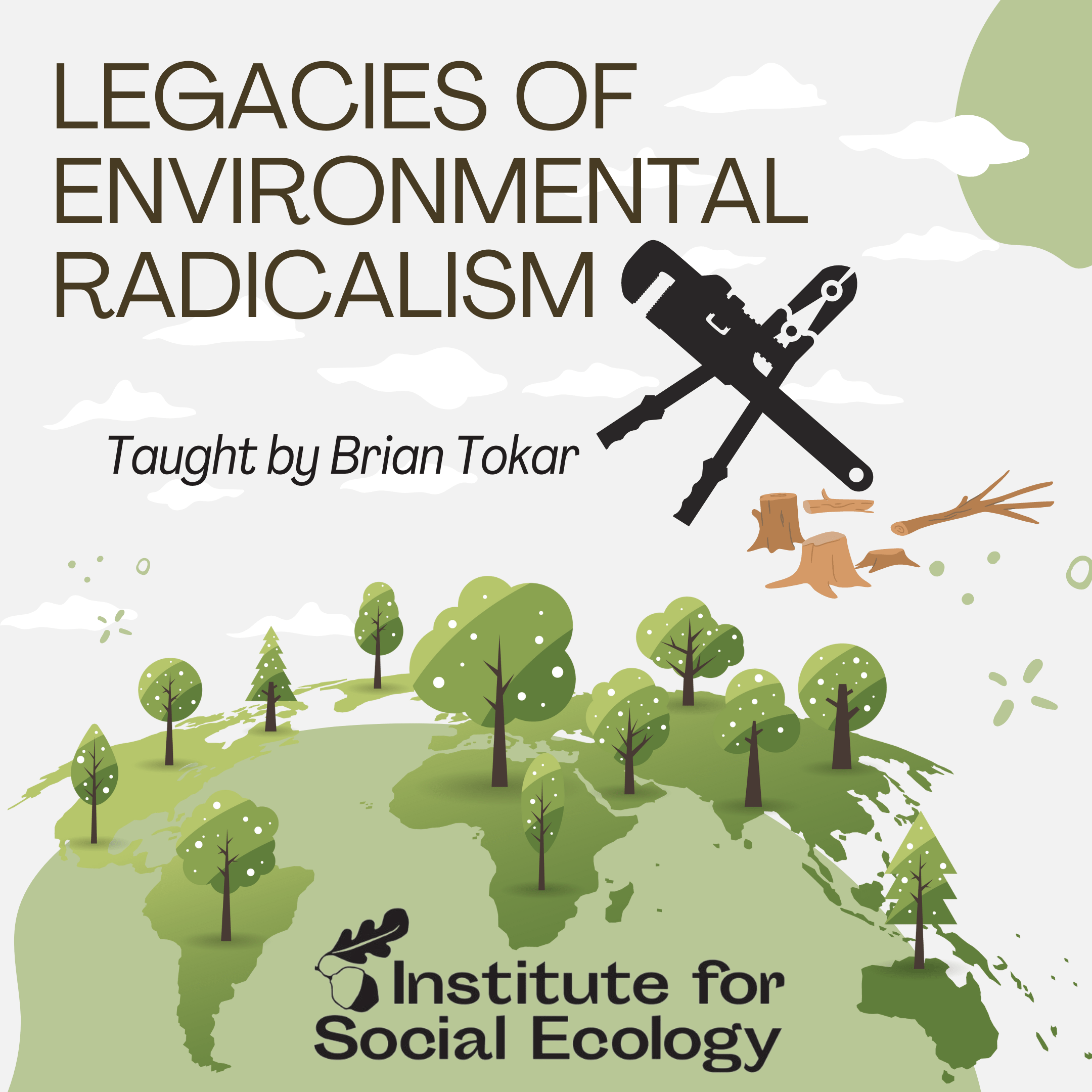Begins August 29, class sessions on Tuesdays from 7 pm to 8:30 pm US Eastern time for ten weeks. Instructor: Brian Tokar.
Over nearly six decades, radical ecologists with widely varied outlooks and philosophies have begun to transform the field – frequently a tool of colonialism and corporate resource management in its earlier years – and developed modes of thought and action that are aimed toward the radical transformation of society. This ten-week class will examine that evolution in depth, and illustrate how social ecologists and many others have helped advance the story of environmental radicalism from the 1960s to the present.
We will explore a variety of perspectives both in theory and praxis, many of which were influenced by social ecology and also helped shape its own development. We will also examine recent trends toward nihilistic and apocalyptic views in the environmental movement and how social ecology and a broadly internationalist perspective can help us reach beyond those tendencies.
This course aims to offer a comprehensive overview of many philosophical and activist
approaches that have shaped environmental radicalism from the 1960s to the present, such as social ecology, deep ecology, environmental justice, ecofeminism, ecosocialism, animal liberation and more. We will examine several of these perspectives in depth, drawing from both historical and contemporary sources and a wide range of unique examples. How have each of these perspectives broadened our understanding of human societies and our relationships with the natural world? What modes of thought and action have proved effective in challenging a status quo that tends to relegate ecological concerns to the margins of politics? How has mainstream environmentalism evolved in response to these radical challenges, and how can we move beyond despair in response to current ecological and political challenges?
College credit will be available through Vermont State University’s Center for Schools for those who are interested, for an additional fee. Contact social-ecology@mail.mayfirst.org for details.


